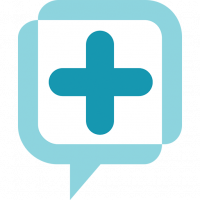ER patients are down nearly 50% since the start of the COVID-19 pandemic. Consequently, morbidity and mortality have increased accordingly. This is according to a May 14, 2020 report in the New England Journal of Medicine (NEJM) Catalyst.
The mission of health care systems is to deliver services to meet the medical and health needs of people in their communities. Even so, in the chaotic times of dealing with the pandemic, the general public is perceiving that hospitals are for COVID-19 patients only. Even more concerning, there is a fear that going to the hospital for other reasons will increase the chance of developing COVID-19. This even carries over into emergency visits for life-threatening conditions.
Clear Messaging for ER Patients Is Vital
This is a very important time for hospital marketing departments to remove the misperceptions that are preventing people from seeking timely and often-times life-saving services. A summary of patient interviews reported in the Catalyst article showed the following concerns:
- People believe hospitals are often infection reservoirs
Most people fear exposure to coughing respiratory patients who create infectious aerosols. Several interviewed were also concerned about not being able to maintain a safe social distance in the ER. Provide information about the safety measures in your facility that prevent the spread of COVID-19. - Patients don’t know about hospital risk mitigation efforts
Wouldn’t patients would feel more reassured if they receive an email that describes hospital cleaning practices? Commercial entities like airlines are doing this. Patients would also like to know what to expect when they go to the hospital. - The most vulnerable patients may need encouragement to seek care
Because they are sheltering-in-place away from family and friends, many of the most vulnerable may be in denial that they need care. You should provide extra messaging about monitoring a loved one’s health and about when to encourage the person to get care. - Signs of heart attack and stroke are important and require emergency services
Shortness of breath and chest pain can be a symptom of both a heart attack and COVID-19. Some people with these symptoms may be self-isolating at home, hoping the virus will pass and they will get better. This delay could mean the difference between life and death. The CDC has identified a set of symptoms that may be confused with COVID-19 and require immediate emergency care:
-
- Trouble breathing
- Persistent pain or pressure in the chest
- New confusion
- Inability to wake or stay awake
- Bluish lips or face
Conclusion
It is important to educate people about what these symptoms are so they can seek emergency care for themselves or a loved one. Medicom Health has a COVID-19 Symptom Assessment that provides education about these symptoms and instructions to get immediate care. The COVID-19 Symptom Assessment is being offered at no charge to hospitals and health systems. If you would like more information about this application, please contact us.
In summary, the overwhelming theme people participating in the survey reported in NEJM Catalyst was fear – fear of contagion, fear of getting the virus, and fear of dying. Focusing your communications on messages to reduce these fears will provide important reassurance and information to the general public.















 Thank you for your interest.
Thank you for your interest.